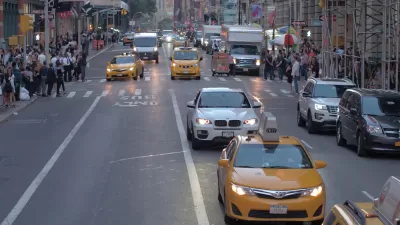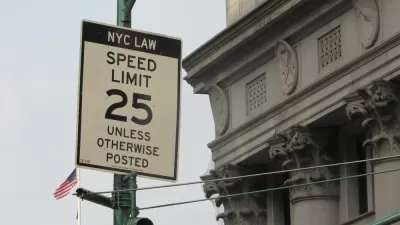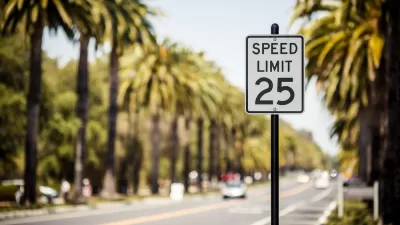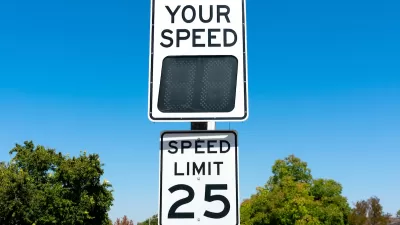City vehicles equipped with speed limiting technology showed nearly complete compliance with speed limit laws and a significant reduction in hard-braking events.

An intelligent speed assistance (ISA) pilot program launched by New York City on 50 city vehicles last August proved successful in improving compliance with speed limit laws, reports Danielle McLean for Smart Cities Dive.
According to the article, “During that time, hard-braking events were reduced by 36% and vehicles complied with local speed limits 99% of the time, with the 1% representing the time between the initial acceleration and the time it takes for the ISA to reduce the speed.”
The city’s Safe Fleet Transition Plan for city fleet vehicles, updated in 2018, “formalized a set of best-practice vehicle safety technologies for all City vehicles to prevent and mitigate crashes, in direct support of Vision Zero,” according to the plan’s introduction.
The city’s Department of Citywide Administrative Services (DCAS) will assess the full results after the program ends next year and “has also requested federal grant funding to broaden the rollout of ISA technology for about 7,500 fleet vehicles over three or four years.”
Last year, the National Transportation Safety Board (NTSB) recommended that the federal government require speed limiting technology on new cars, a suggestion that earned critical fear mongering from some pundits who viewed it as an invasion of privacy (more on that here).
FULL STORY: NYC says vehicles equipped with speed limit tech reduced unsafe driving

Planetizen Federal Action Tracker
A weekly monitor of how Trump’s orders and actions are impacting planners and planning in America.

Maui's Vacation Rental Debate Turns Ugly
Verbal attacks, misinformation campaigns and fistfights plague a high-stakes debate to convert thousands of vacation rentals into long-term housing.

San Francisco Suspends Traffic Calming Amidst Record Deaths
Citing “a challenging fiscal landscape,” the city will cease the program on the heels of 42 traffic deaths, including 24 pedestrians.

Amtrak Rolls Out New Orleans to Alabama “Mardi Gras” Train
The new service will operate morning and evening departures between Mobile and New Orleans.

The Subversive Car-Free Guide to Trump's Great American Road Trip
Car-free ways to access Chicagoland’s best tourist attractions.

San Antonio and Austin are Fusing Into one Massive Megaregion
The region spanning the two central Texas cities is growing fast, posing challenges for local infrastructure and water supplies.
Urban Design for Planners 1: Software Tools
This six-course series explores essential urban design concepts using open source software and equips planners with the tools they need to participate fully in the urban design process.
Planning for Universal Design
Learn the tools for implementing Universal Design in planning regulations.
Heyer Gruel & Associates PA
JM Goldson LLC
Custer County Colorado
City of Camden Redevelopment Agency
City of Astoria
Transportation Research & Education Center (TREC) at Portland State University
Jefferson Parish Government
Camden Redevelopment Agency
City of Claremont





























